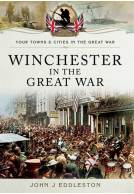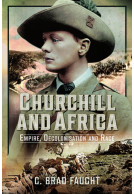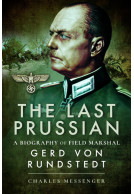Tommy French (ePub)
How British First World War Soldiers Turned French into Slang
Imprint: Pen & Sword Military
File Size: 30.0 MB (.epub)
Pages: 224
ISBN: 9781526765932
Published: 8th April 2021
National publicity
As featured in The Times: 'How troops in the trenches learnt to parlay Franglais'
| Other formats available - Buy the Hardback and get the eBook for £1.99! | Price |
|---|---|
| Tommy French Hardback Add to Basket | £19.99 |
‘Napoo’, ‘compray’, ‘san fairy ann’, ‘toot sweet’ are anglicized French phrases that came into use on the Western Front during the First World War as British troops struggled to communicate in French. Over four years of war they created an extraordinary slang which reflects the period and brings the conflict to mind whenever it is heard today.
Julian Walker, in this original and meticulously researched book, explores the subject in fascinating detail. In the process he gives us an insight into the British soldiers’ experience in France during the war and the special language they invented in order to cope with their situation.
He shows how French place-names were anglicized as were words for food and drink, and he looks at what these slang terms tell us about the soldiers’ perception of France, their relationship with the French and their ideas of home. He traces the spread of ‘Tommy French’ back to the Home Front, where it was popularized in songs and on postcards, and looks at the French reaction to the anglicization of their language.
The colourful language of Jack Tar certainly had an influence on the English language – as did the cant of the British soldiery. Anglicized French phrases came into use on the Western Front during the First World War as British troops struggled to communicate in French. One such is ‘napoo’ from ‘il n’y en a plus’ – there’s none left. Julian Walker explores the subject in detail and in the process gives us an insight into the British soldiers’ experience in France during the war and the special language they invented in order to cope with their situation. He shows how French place-names were anglicized as were words for food and drink, and he looks at what these slang terms tell us about the soldiers’ perception of France, their relationship with the French and their ideas of home. He traces the spread of ‘Tommy French’ back to the Home Front, where it was popularized in songs and on postcards, and looks at the French reaction to the anglicization of their language. A fascinating study of an encounter between two languages and cultures.
Julian Stockwin
Read the full review here
"A terrific study that deserves a place on the bookshelves of anyone who has an interest in the experience of the British soldiers of the Western Front."
Western Front Association
Having grown up on military camps you often find that the armed forces have their own lingo or language both those in the forces and their families. Even now I could have a conversation with my wife and kids and they wouldn’t know what I was going on about. So when I was offered the chance to review Tommy French I gladly took it. When men from different nations come together there has to be some way of getting along and the job done. This book clearly illustrates this well, in that whilst you have french and english one can’t dominate the other, so you have this fudge or formation of some sort where the two marry together. The author Julian Walker does a great job of illustrating the words and amalgamations, and it’s often great to see how these words are often still around in use even today in some way. I really enjoyed this book a lot mainly because I love words, sayings and books I would certainly recommend this to others.
UK Historian
Read the full review here
To be read alongside Brophy and Patridge's 'The Long, Long Trail' and Martin Pegler's 'Songs and Slang of the Great War', this is a entertaining look at how Tommy Atkins made sense of the French language and then made it his own.
Paul Nixon
The British Army had plenty of practice in this matter, having spent years in India anglicizing Hindi. As Rudyard Kipling noted in 'Route Marchin'' in the 1890s, "Kiko kissywarsti don't you hamsher argy jow?" Kipling gets a couple of mentions and Brophy and Partridge are referenced multiple times, as they rightly should be, but this book is a welcome new take on soldier slang or the more polite 'Tommy French' as the title of the book tells us.
Well referenced and well indexed, Julian Walker's book draws on multiple sources and is also well illustrated. Thankfully, Pen & Sword issued this as a hardback. It is just as well, as a paperback could soon become very dog-eared.
Read the full review here
For Centuries the British and the French fought each other off and on, in varying alliances of other parties. But WW I brought about something for which both sides were unprepared. The men of the two countries were allies in the trenches where they fought cheek by jowl together. Since the trenches blighted the landscape of France, both on the field and on leave, the soldiers were faced with a large challenge. How to communicate with the other side when you do not have any knowledge of their language.
NetGalley, Susan Johnston
So the British Tommy, with necessity being the mother of invention, created a new language that seemed to bridge the gap. They took French words and anglicized them as much a possible and turned them into slang. Some of the words have been passed down and are still in use today. It was a creative solution to a thorny problem as orders between troops and the interpretation of orders between allies was pretty important if you wanted to fight a battle in tandem. Moreover, just trying to purchase a good or service from the locals required the ability to understand and be understood.
Certainly some achieved greater success than others as it was unusual for someone not of a certain class to have taken any French at school. And as anyone who has taken a foreign language can attest, school book language is far different from local patter. But somehow for the duration they managed to muddle through and this book gives a detailed account, often in the first person, of the trials and tribulations that come from creating something that could be understood by most.
A Fascinating piece of social history.
Books Monthly
How troops in the trenches learnt to parlay Franglais
The Times 03/03/21
A linguistic historian has created the first in-depth guide to the “Tommy French” that arose from the interactions of English-speaking troops with civilians
About Julian Walker
Julian Walker is a leading authority on First World War slang and manages the international project ‘Languages and the First World War’. He has convened conferences on the subject and lectured and written extensively about it. His previous books include Trench Talk, Languages and the First World War and Words and the First World War. He reckons his own French is about as good as that of the average second lieutenant in 1916.
















